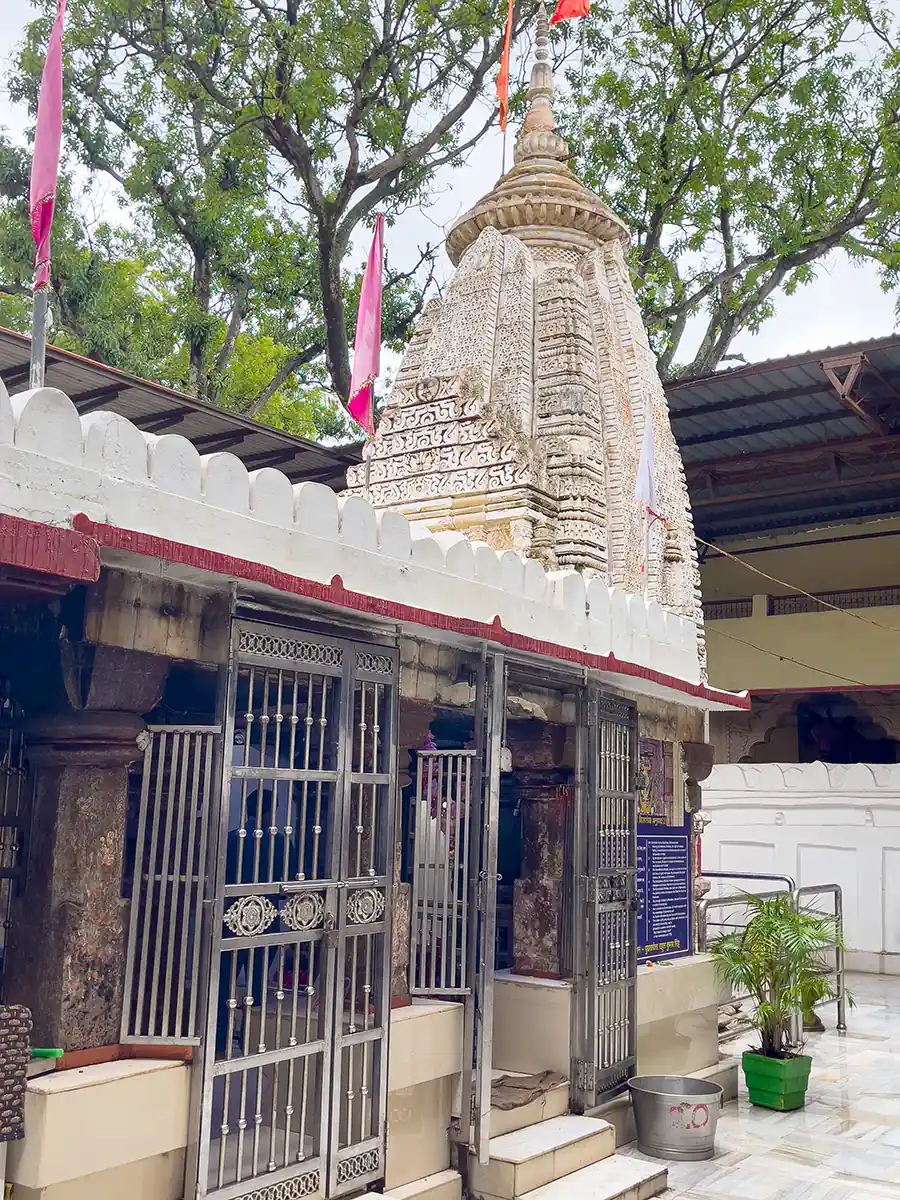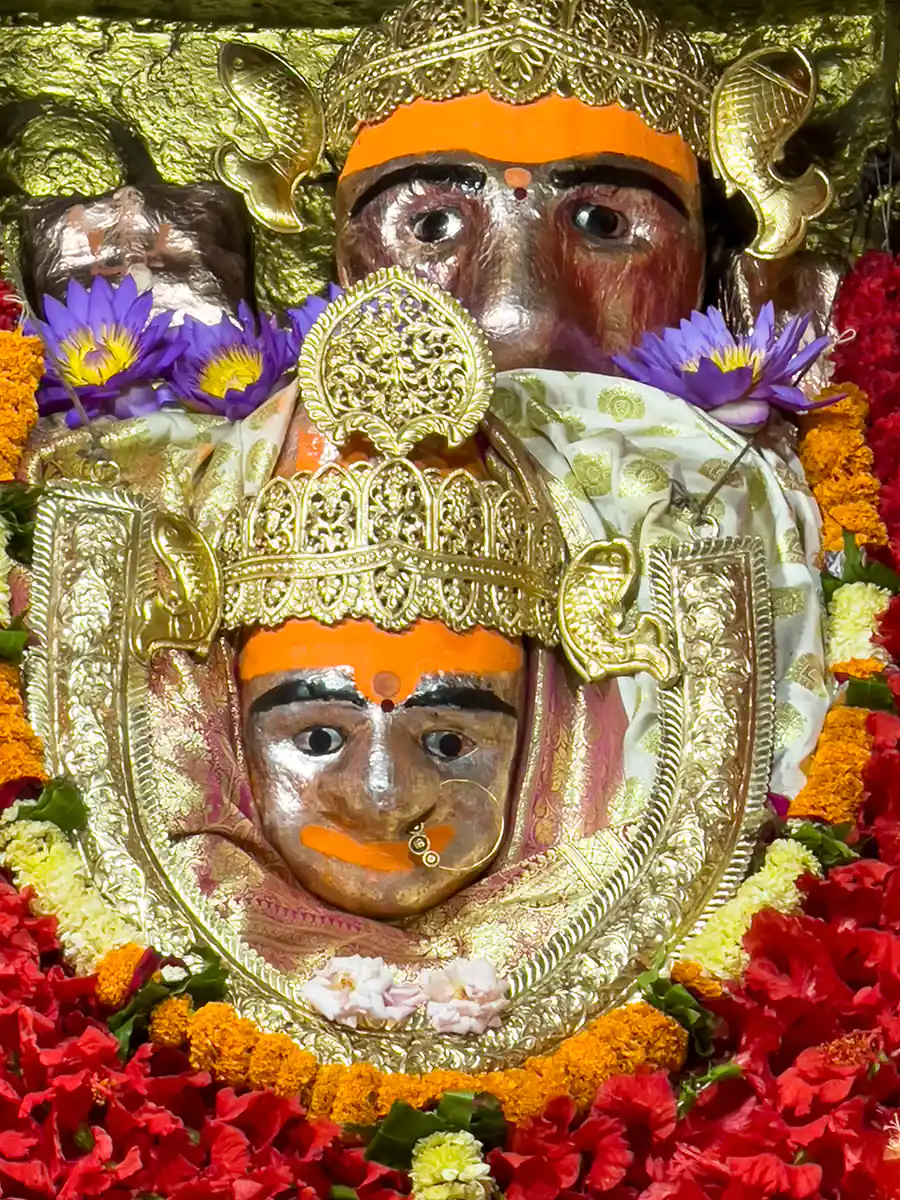Mahamaya Devi Temple, Ratanpur
Mahamaya Devi Temple is a sacred site located in the town of Ratanpur in the Indian state of Chhattisgarh. The temple is dedicated to the Hindu goddess Mahamaya, who is believed to be an incarnation of Shakti, the divine feminine energy. Mahamaya Devi Temple is an important pilgrimage site for devotees of Shaktism and attracts a large number of visitors throughout the year.
The religious significance of Mahamaya Devi Temple is rooted in Hindu mythology, which holds that Mahamaya Devi appeared before the sage Markandeya and revealed her divine form to him. The goddess is believed to possess immense spiritual power and is venerated as the divine mother who protects her devotees from harm and guides them on the path of righteousness.
The temple has a rich history dating back to ancient times. According to legend, the temple was originally built by King Ratansen of the Kalchuri dynasty in the 11th century. It is said that the king had a vision of the goddess Mahamaya and was instructed by her to build a temple at the site where her idol was discovered. The temple has undergone several renovations and restorations over the centuries, with the most recent major renovation taking place in the early 20th century.
The architecture of Mahamaya Devi Temple is typical of many Hindu temples in India, with a complex of buildings arranged around a central courtyard. The temple is adorned with intricate carvings and sculptures depicting scenes from Hindu mythology, and the interior is decorated with colorful murals and frescoes. The temple has several halls and sanctums dedicated to different deities, including Mahamaya Devi, Lord Shiva, Lord Vishnu, and Lord Ganesha.
The temple is situated in a picturesque location on the banks of the river Mahanadi, is surrounded by gardens and parks, and visitors can enjoy a peaceful walk along the riverfront.
Mahamaya Devi Temple is a popular pilgrimage site for devotees of Shaktism, who come to offer their prayers and seek the blessings of the goddess. The temple is particularly crowded during the Navratri festival, which celebrates the victory of good over evil and is dedicated to the worship of the divine feminine. The festival is held twice a year, in the months of March/April and September/October, and attracts thousands of pilgrims from all over India.
In addition to its religious significance, Mahamaya Devi Temple is also an important cultural and historical landmark, with a rich legacy that reflects the unique traditions and customs of the region. The temple has played a significant role in shaping the cultural and social fabric of the local community and continues to be a symbol of faith, devotion, and spiritual awakening. Today, the temple remains an important pilgrimage site and a source of inspiration and guidance for people seeking a deeper connection with the divine
Chronology
- Ancient Times: According to one legend, the temple was built by King Ratansen of the Kalchuri dynasty, while another legend suggests that the Pandavas built the temple during their exile. It's important to note that these are both legends and there is no concrete evidence to support either claim.
- 7th century: The temple was built by the Kalchuri king Ratnadeva.
- 10th-11th century: The temple was renovated by the Kalchuri King Karnadeva.
- 12th century: The temple was renovated and expanded by King Ratnadeva.
- 13th-14th century: The temple was renovated by the Nagvanshi king Ramchandra.
- Early 18th century: The temple was damaged and looted by the Maratha army under the leadership of Peshwa Baji Rao.
- Late 18th century: The temple was renovated by the Maratha ruler Ranoji Bhonsle.
- Early 19th century: The temple was renovated by the Pandit Jeevan Lal Sharma of Ratanpur.
- Late 19th century: The temple was renovated by the Queen of Ratanpur, Maharani Kamlapati Devi.
- 1910: The temple was renovated by the Raja of Ratanpur, Baldev Singh.
- 1973: A major renovation and expansion project was undertaken by the government of Madhya Pradesh.
- Annual: The most important festival celebrated at the temple is Navratri, which takes place twice a year in the months of Chaitra (March-April) and Ashwin (September-October). During this time, the temple is decorated with lights and flowers, and a fair is held in the surrounding area.

Martin Gray is a cultural anthropologist, writer and photographer specializing in the study of pilgrimage traditions and sacred sites around the world. During a 40 year period he has visited more than 2000 pilgrimage places in 160 countries. The World Pilgrimage Guide at sacredsites.com is the most comprehensive source of information on this subject.


